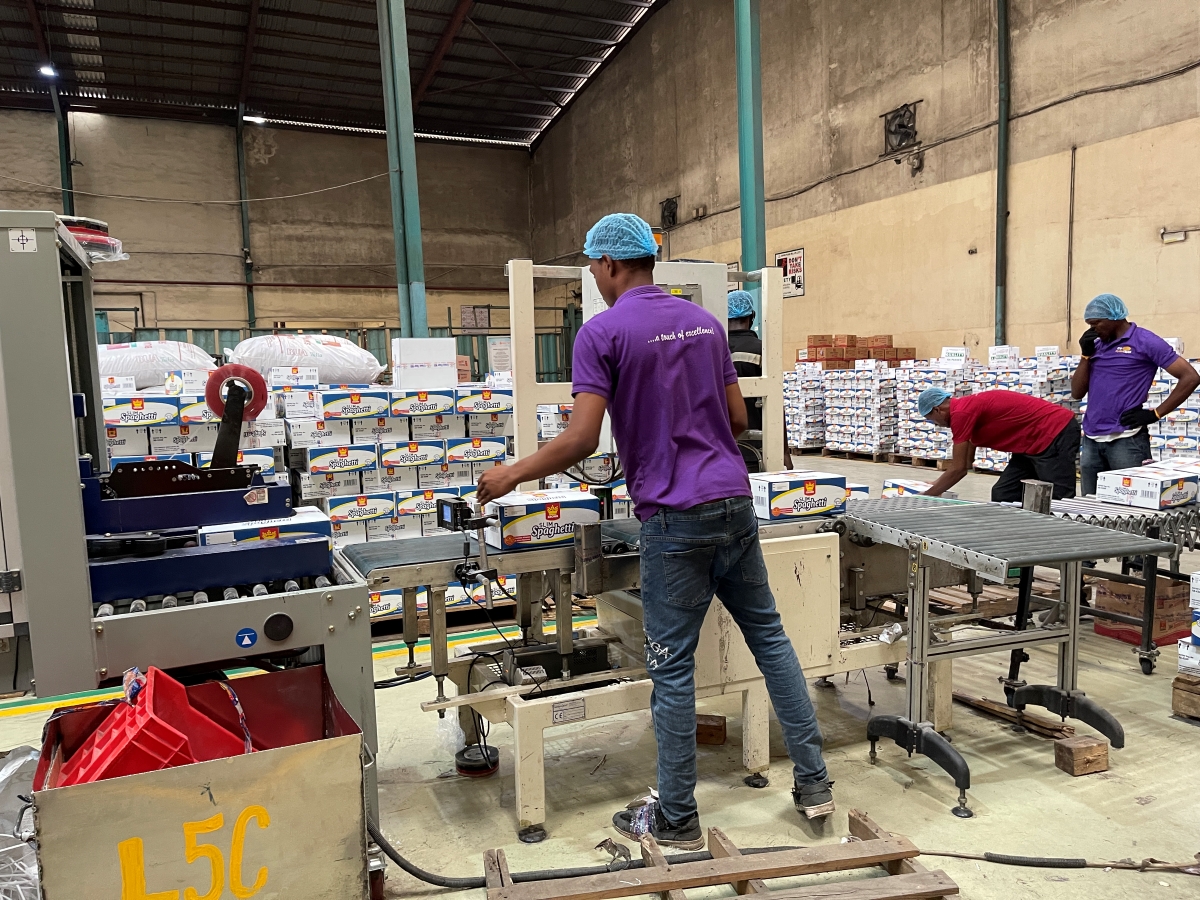Olam to establish pasta factory in Ghana
The facility aims to meet all domestic pasta demand and cut dependence on imports
 Photo credit: Que Boxi
Photo credit: Que Boxi
Singapore-based agribusiness major Olam Agri has unveiled plans to establish a pasta factory in Ghana, aiming to supply affordably priced, high-quality pasta. The facility will initially focus on serving the local market, with ambitions to export to neighbouring countries in the future. The two-phase project has the potential to meet the entire demand for pasta in Ghana, a country of over 33m people. Wheat used to produce the pasta will be directly sourced and milled by Olam. The Singapore-based firm already operates a wheat mill in Tema, supplying flour for bread, baguettes, pastries, and biscuits. It has maintained a presence in Ghana for over 30 years.
Olam Agri has been in the wheat milling and pasta production business in Africa for nearly 15 years. Besides Ghana, it currently produces wheat flour in Nigeria, Senegal, and Cameroon, with domestic distribution in those markets and exports to Benin, Togo, Burkina Faso, Chad, Central African Republic, Mali, and Guinea. Olam also manufactures pasta in Nigeria for local retail under brands such as Mama Gold, Crown Premium, First Choice, and Bijou.
Ghana – a major producer of cocoa, gold, and oil – is in the midst of a financial crisis as inflation, harvest failures and currency slide have combined to erode the purchasing power of the common man. Although inflation eased for the fifth consecutive month in August, falling to 20.4% year-on-year from 20.9% in July, it remains well above the central bank’s medium-term target of 8%. Over the past year, the Ghanaian cedi has depreciated by around 36% against the US dollar, sliding from GHS11.54 per dollar in mid-September 2023 to GHS15.74 earlier this month. This depreciation has driven up the cost of imported goods. In 2023, Ghana imported more than US$27m worth of pasta, with 80% of it coming from Türkiye.
In a bid to support Ghana’s economic recovery, the International Monetary Fund (IMF) approved a US$3bn, three-year credit facility in 2023. The support package aims to help the country recover from a severe financial crisis marked by unsustainable debt levels. The economic challenges stemmed from pre-existing vulnerabilities exacerbated by external shocks such as the Covid-19 pandemic and Russia’s war in Ukraine. These factors led to sharp financing pressures, a depreciating currency, declining international reserves, slowing economic activity, and persistently high inflation.
Despite these pressures, the economy is anticipated to recover in 2025. Lower consumer prices are expected to lead to reduced interest rates, supporting growth. GDP is forecast to grow by 4.4% in 2025 and 4.9% in 2026, compared to 2.8% in 2024. Additionally, gold mining output is expected to increase, driven by production from the Bibiani and Ahafo North mines. However, the upcoming December elections present potential downside risks to this recovery.
References
'Key questions on Ghana', International Monetary Fund, 28 June 2024
'West Africa economic outlook, August 2024', Deloitte, 19 August 2024
'Olam Agri to build pasta facility in Ghana', World Grain, 30 August 2024
'LinkedIn post', Olam Agri, September 2024
'LinkedIn post', Baibhav Biswas, September 2024
'Ghana consumer inflation slows for fifth month in August', CNBC Africa, 11 September 2024
'Ghana's inflation rate falls to 20.4% in August', Nairametrics, 11 September 2024
'List of supplying markets for a product imported by Ghana', International Trade Centre, Accessed 15 September 2024
‘Ghana’, Olam Agri, Accessed 15 September 2024
‘World Economic Outlook database: April 2024’, International Monetary Fund, Accessed 15 September 2024














/enri-thumbnails/careeropportunities1f0caf1c-a12d-479c-be7c-3c04e085c617.tmb-mega-menu.jpg?Culture=en&sfvrsn=d7261e3b_1)

/cradle-thumbnails/research-capabilities1516d0ba63aa44f0b4ee77a8c05263b2.tmb-mega-menu.jpg?Culture=en&sfvrsn=1bc94f8_1)







